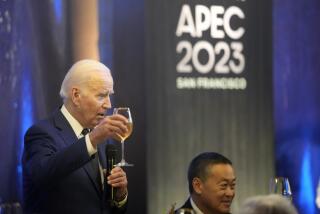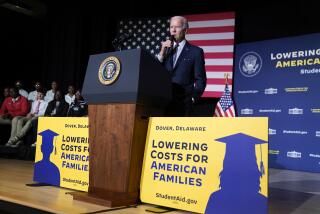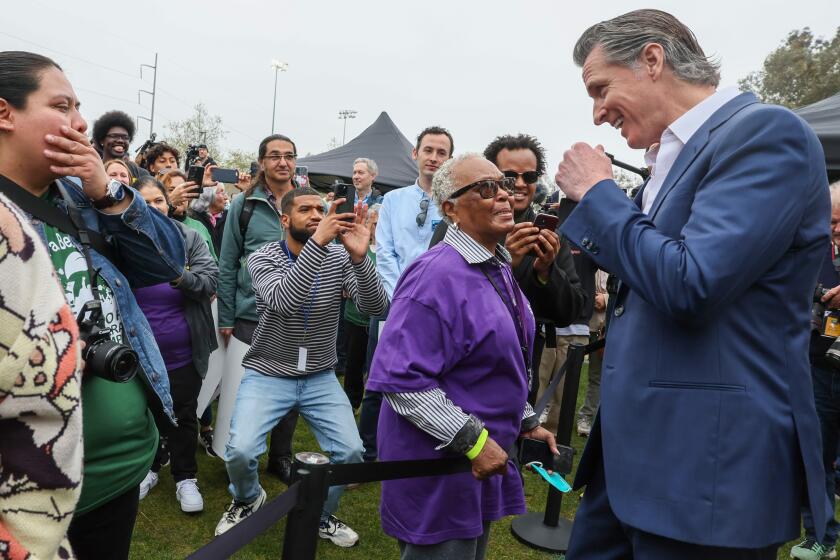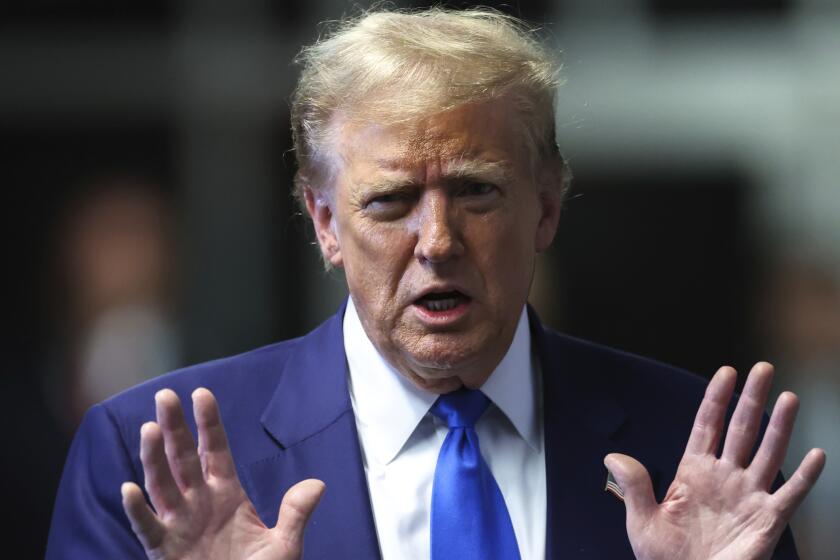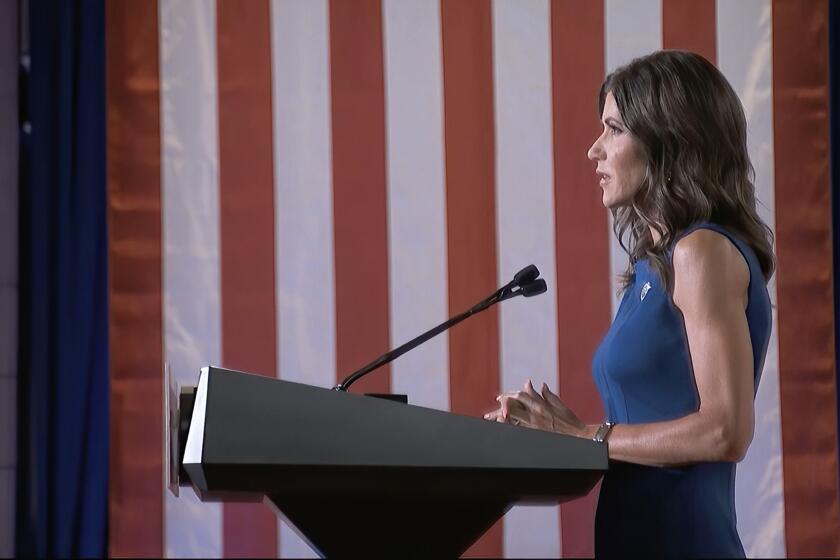Clinton Observes World AIDS Day With Low-Key Private Meeting : Politics: In contrast with major address last year, President talks with youths who have disease. Advocates fear his support will wane.
There was no mistaking the symbolism of President Clinton’s day Thursday--a low-key, virtually secret meeting with six young people living with AIDS to mark World AIDS Day, and a full-dress Rose Garden ceremony with the Joint Chiefs of Staff to announce plans to spend an additional $25 billion on the military.
The military spending announcement was the first major White House policy initiative since the Nov. 8 Republican electoral sweep and the first clear sign of how shifts in Clinton Administration political priorities will affect the federal budget that officials are now preparing.
In the weeks since the election, aides and advisers have debated long and vigorously how to adapt to the new political realities, with the GOP in control of both houses of Congress and the public seemingly ill-disposed toward Clinton’s ideas of activist government.
Clinton has given hints that he intends to move right, to return to his centrist, “new Democrat” roots. But until Thursday it had been mostly talk.
While aides were debating ways to find a few hundred million dollars for AIDS programs, school lunches and homeless shelters, Clinton was out in front of the cameras Thursday pledging billions for the Army, Navy, Air Force and Marines.
Christine Lubinski, acting director of the AIDS Action Council, said she fears that Clinton’s response to the November elections would be fiscal infatuation with the military and diminished commitment to dealing with the AIDS epidemic.
She said that the Administration had not yet decided how much money it will devote to AIDS prevention and treatment programs in the fiscal 1996 budget but that AIDS and gay rights groups would be watching closely to see how Clinton’s policies develop over the next two years.
“We’ll certainly be very discouraged if the President abandons his base, and we see ourselves as part of his base,” Lubinski said.
A year ago on World AIDS Day, Clinton visited seven AIDS patients at Georgetown University Hospital and gave a major address on his Administration’s efforts to combat the disease.
This year, by contrast, Clinton met privately in the Oval Office with six young people living with AIDS. The event was not on his official schedule, and no reporters or photographers were allowed to record the session.
White House aides said that Clinton asked for the private session to learn firsthand the problems of adolescents afflicted with AIDS and had made no attempt to avoid publicizing it.
Participants in the AIDS meeting, speaking afterward with reporters, said Clinton seemed concerned about their plight but proposed no new initiatives to fight the disease.
But Thursday’s announcement of additional billions for military training, pay raises and improved living conditions was welcomed by the military as a sign that Clinton is serious about repairing his relations with the armed forces.
Retired Army Lt. Gen. Richard West, vice president of the Assn. of the U.S. Army, said Pentagon officials had spoken before the November elections of boosting military spending by $20 billion over the next six years, but Clinton upped the ante.
West said Clinton’s new budgetary enthusiasm will help his image among the men and women in uniform.
“This will give a better tone to things. Sure it will,” the general said.
Al From, director of the Democratic Leadership Council, a centrist group that Clinton once chaired, said that pledging more money for military readiness was an astute political move for Clinton, who is still seeking a viable future for his Administration.
The council has been urging him to move to the center to try to recapture disillusioned voters who may believe that he has become too closely tied to liberal causes and big-government solutions.
“It’s smart for two reasons,” From said. “First, it sends important and right signals, and second, it’s real, it has impact. This isn’t making a speech; this is calling for more money, and he’s going to get it.”
More to Read
Get the L.A. Times Politics newsletter
Deeply reported insights into legislation, politics and policy from Sacramento, Washington and beyond. In your inbox three times per week.
You may occasionally receive promotional content from the Los Angeles Times.

